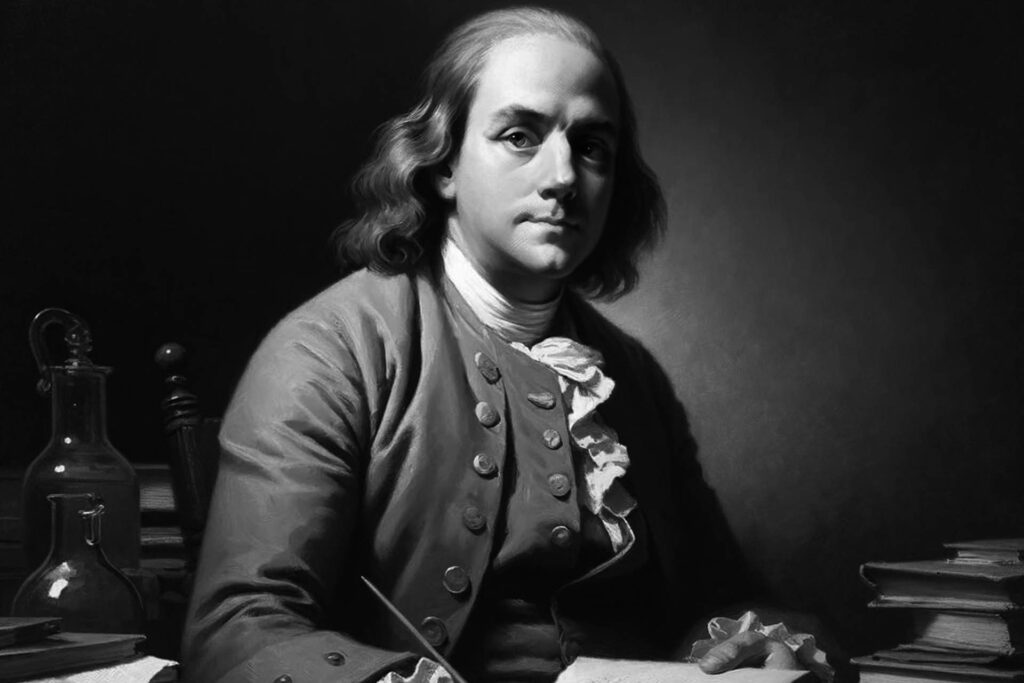Benjamin Franklin is one of the most inspiring and influential figures in history, renowned for his incredible contributions to science, politics, and society. Yet, Franklin’s early life was far from exemplary. Known for his brashness, excessive drinking, and argumentative nature, Franklin was once a man many would have avoided.
However, Franklin’s story isn’t just about his achievements—it’s about his transformation. Through self-awareness and intentional action, Franklin molded himself into the man remembered as the “Greatest American Diplomat” and a shining example of personal growth.
The Turning Point
Franklin’s journey to greatness began when someone who cared about him spoke the hard truth about how his behavior affected others. That moment of honesty became the catalyst for change. Franklin decided to take control of his life, crafting a system of self-improvement that would not only transform him but also inspire countless others.
The 13 Virtues: A Framework for Intentional Living
Franklin developed a list of 13 virtues—guiding principles to shape his character. Each week, he focused on one virtue, practicing it diligently. After 13 weeks, he would begin again, completing four cycles each year.
To track his progress, Franklin used a small book with 13 charts. Each chart listed the virtues at the top and included columns for each day of the week. Every evening, he reviewed his day and marked any faults he had committed.
Here are Franklin’s 13 virtues:
- Temperance: Eat not to dullness; drink not to elevation.
- Silence: Speak only what benefits others or yourself; avoid trivial talk.
- Order: Let all things have their places; let each part of your business have its time.
- Resolution: Resolve to perform what you ought; follow through without fail.
- Frugality: Waste nothing; make expenses only for good to others or yourself.
- Industry: Lose no time; always engage in something useful; avoid unnecessary actions.
- Sincerity: Use no hurtful deceit; think and speak justly.
- Justice: Wrong none; fulfill your duties and obligations.
- Moderation: Avoid extremes; restrain your reactions to injuries.
- Cleanliness: Maintain cleanliness in body, clothing, and living space.
- Tranquillity: Do not be disturbed by trifles or unavoidable accidents.
- Chastity: Use intimacy for health or offspring, never for harm or indulgence.
- Humility: Imitate Jesus and Socrates.
These virtues became Franklin’s compass, helping him shape his life with intention. As he practiced these principles, he saw results—not just in his personal growth but also in his ability to positively impact others.
Masterminding with Others
As Franklin’s life improved, he recognized the power of sharing his principles with others. He surrounded himself with like-minded individuals who supported each other in their journeys of self-improvement. This mastermind approach helped accelerate growth and accountability.
Your Call to Intentional Living
What are you doing to become the person you want to be?
- Do you have a set of guiding principles or virtues you practice daily?
- Are you tracking your progress and holding yourself accountable?
- Have you created a circle of like-minded people to inspire and challenge you?
You don’t need to become the next Benjamin Franklin to make meaningful changes in your life. Start by being Intentional. Develop your own set of principles. Practice them consistently. Surround yourself with people who will encourage and hold you accountable.
The journey to personal greatness begins with a single intentional step. Where could you be if you started today?
Make the choice. Chart your course. Transform your life.

